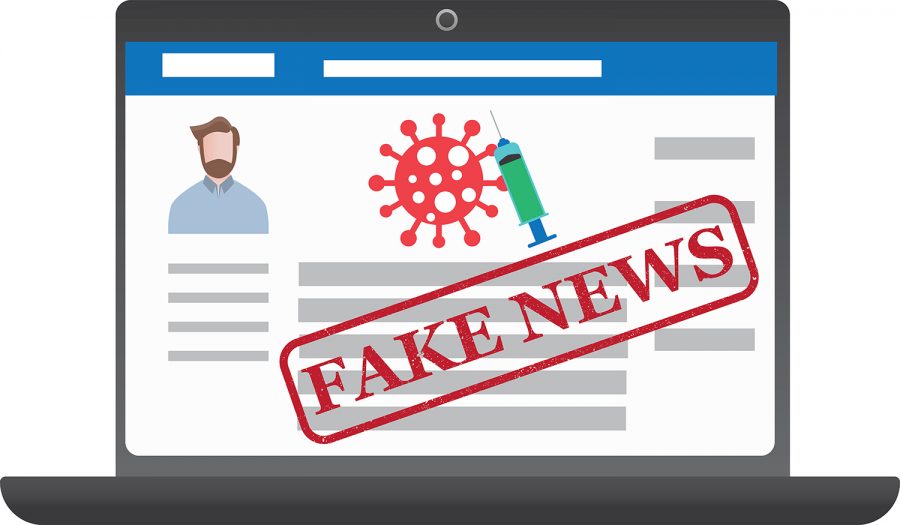Opinion | We need to educated on identifying misinformation online
Misinformation is becoming more of a problem in our society, and people need to be taught how to discern inaccurate information.
Coronavirus vaccine misinformation on social media
September 23, 2021
During the week of Sept. 17, rapper and artist Nicki Minaj tweeted a rather bizarre and unusual statement claiming that her cousin’s friend suffered from swollen testicles and became impotent after receiving the COVID-19 vaccine. The story spread like wildfire and was covered by major news outlets. This example demonstrated perfectly how much of a problem misinformation is becoming.
We live in an age of too much information. Everything is connected, and our phones buzz with news notifications constantly. In the current landscape, those being born into it are not being given the tools to navigate it. The school curriculum needs to teach the next generation how to deal with this.
Our election cycles are becoming an irritating headache where voters are being bombarded with fake news and stories meant to sway their votes to either side of the aisle. As mentioned in a report by the St. Louis Dispatch, the upcoming elections in Virginia and New Jersey are already proving to be perfect examples of this, with far-right groups claiming the election will be rigged to a specific outcome and election officials are being targeted with threats.
How bad is the problem of misinformation currently? According to MIT Technology Review, as many as 140 million American voters were targeted with false information and fake news in the leadup to the 2020 election. Once someone takes in this type of misinformation, they may become more susceptible to similar false information in the future which can lead to extremism. The prevalence of false information about vaccines and the effect it has had on the population at large during the current pandemic are a good example of this.
So, how do we solve the problem? One way is through the education systems. High schools across the country along with colleges like the University of Iowa should teach facts about how to spot misinformation, how to deal with people exposed to it, and why it exists in the first place in their curriculum. It’s just as essential as anything else being taught and will only become more crucial the more reliant society becomes on the internet.
The ability to fight against misinformation also lies with each of us as individuals as well. Before reposting an article on Twitter or sharing a post from Instagram, each of us should check into the validity of said article and if it comes from a reliable source. Search up who the article is written by and how reliable they are before we share it with our thousands of friends on Facebook or Twitter.
Another way to combat misinformation is through collective action. The education system has to begin to incorporate these essential skills regarding information consumption, as future generations are going to be faced with it more and more as time goes on.
As individuals, we have the responsibility of making sure the information we are about to post on social media is accurate before we misinform others. Misinformation affects everyone, and the problems it causes are becoming more and more clear. A misinformed populace is a vulnerable one, and schools can help make sure that doesn’t happen as can we as individuals.
Columns reflect the opinions of the authors and are not necessarily those of the Editorial Board, The Daily Iowan, or other organizations in which the author may be involved.



